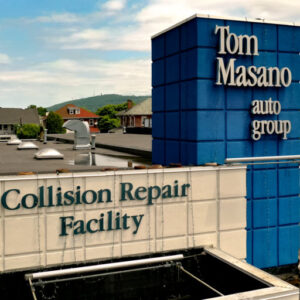A sale of your shop may seem like a long way off, but it doesn’t hurt to start thinking about what the process looks like, says Focus Advisors Managing Director David Roberts.
Amid all the hustle and bustle of the last three years of COVID, PPP loans, parts shortages, technician shortages and consolidation, there has been a lack of straight talk about the increasing transition of owners looking to sell their businesses. In the next five years, as many as 5,000 shops may sell or close their doors. And their owners should be fully informed about what it really takes to successfully exit the business.
It’s understandable that frank discussions in print about this trend have been largely avoided. But talking and writing out loud about what many are saying in private is one of the best ways to prepare for the future. So this column will be all about information on the process, the risks and rewards, stories of success and failure along the way.
“Someday” will be here before you know it.
Someday I’m going to quit this business and ride my Harley to Yellowstone.
Someday our family is going to spend the whole winter in a warm place.
Someday I’ll build my lakehouse and go fishing with my grandkids.
Someday I’m going to spend a lot more time at the beach without worrying about how the shops are running.
Someday I’ll think about selling my shops.
Well “someday” has gotten a lot closer. In fact, “someday” is here for thousands of shop operators. And when “someday” arrives for you, what do you do?
It all starts with preparation. Sometimes years in advance but for most folks who’ve decided to sell, it’s more like 6-9 months before you pull the trigger on a decision to sell.
What kind of preparation exactly?
Understand what it takes to sell a business and the M&A process.
Selling your business is a once-in-a-lifetime event for most sellers, unlike any other transaction you’ve ever done. It’s not like negotiating a paint loan or a dealer referral agreement or getting on a new DRP program. It takes preparation, good advice, time and patience. There is a process to selling a business successfully. It’s not unlike the protocols that you follow in making complex repairs to sophisticated vehicles.
And it’s emotional. Never underestimate how saying goodbye to your employees after decades of working together as family will impact you—and them.
Finances
- Are your books and records in good shape? Are you recording all your revenues, especially cash transactions?
- Are you using standardized accounting software with the right account codes?
- Does someone in your organization really understand CCC One and Quickbooks so you can produce accurate reports and answer financial questions?
- Do you have a good CPA who does more than just your taxes?
Certifications and Equipment and Premises
- Have you finally gotten I-CAR Gold certified?
- Do you have OE certifications that are more than just a piece of paper?
- Do you have the right equipment and people trained to use it properly?
- Do your shops look good, clean, well organized?
Succession Planning
- Have you trained a key employee to step up to managing the entire operation? Does he or she understand the P&L and how it’s put together?
- Is that employee interested and/or committed to remaining with the business after it’s sold?
Franchise Agreements and Paint Loans
- Do you understand your termination fees and requirements?
- Do you know the balance and terms of any paint loans?
Real Estate
- Do you own your real estate or do you lease from a third party or parties?
- Do you have a long-term lease—even if it’s with yourself?
- Do you have the right to assign your lease?
Advisors
- Do you have trusted advisors?
- An intermediary to help you prepare and take you to market?
- An attorney that has experience in M&A transactions?
- A bookkeeper or CPA who understands how to interact with sophisticated buyers?
Understanding the Market in your Region
- Do you know the potential buyers in your market?
- Do you know their criteria for identifying and qualifying prospective acquisitions?
These are just some of the preparations for getting ready to sell your business. In future columns, we will dive more deeply into these and other questions that will help you consider your alternatives.
David Roberts is managing director of Focus Advisors. An original co-founder of Caliber Collision, he has been advising body shop owners for more than twenty years on how to grow and sell their businesses.
This article by David Roberts was originally published in Fender Bender on August 21, 2022. Here is the link for that article.






